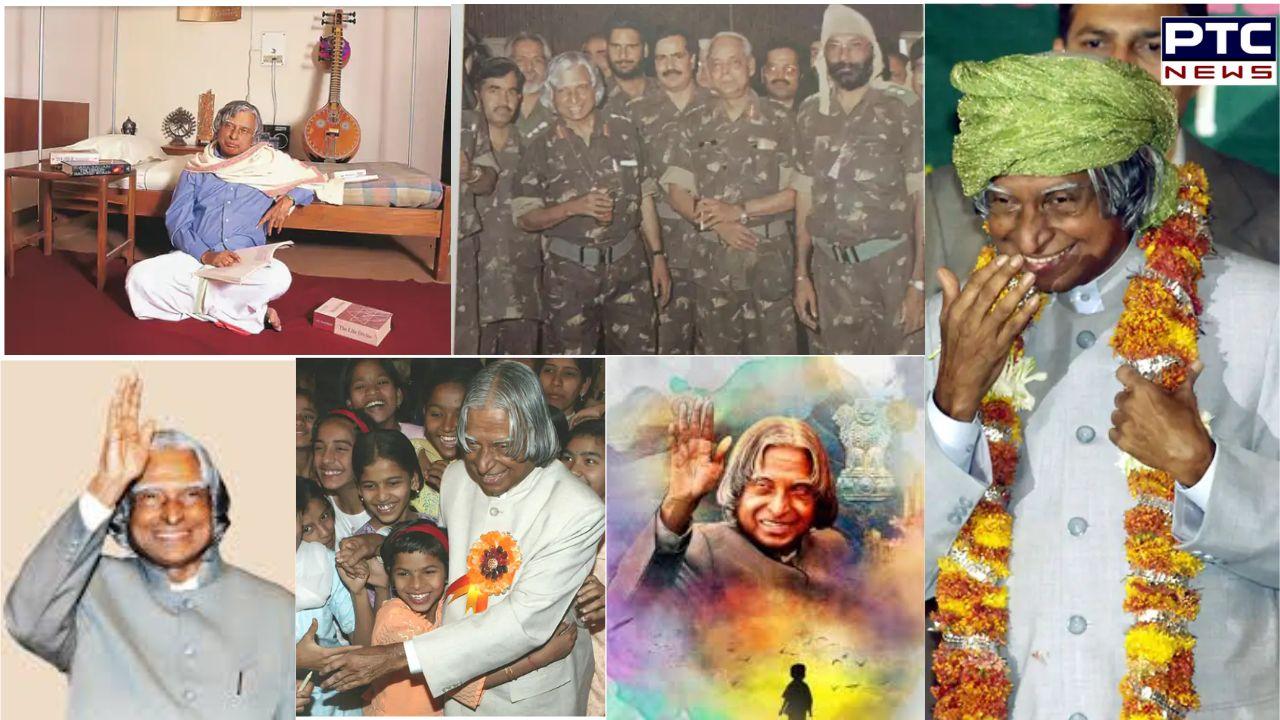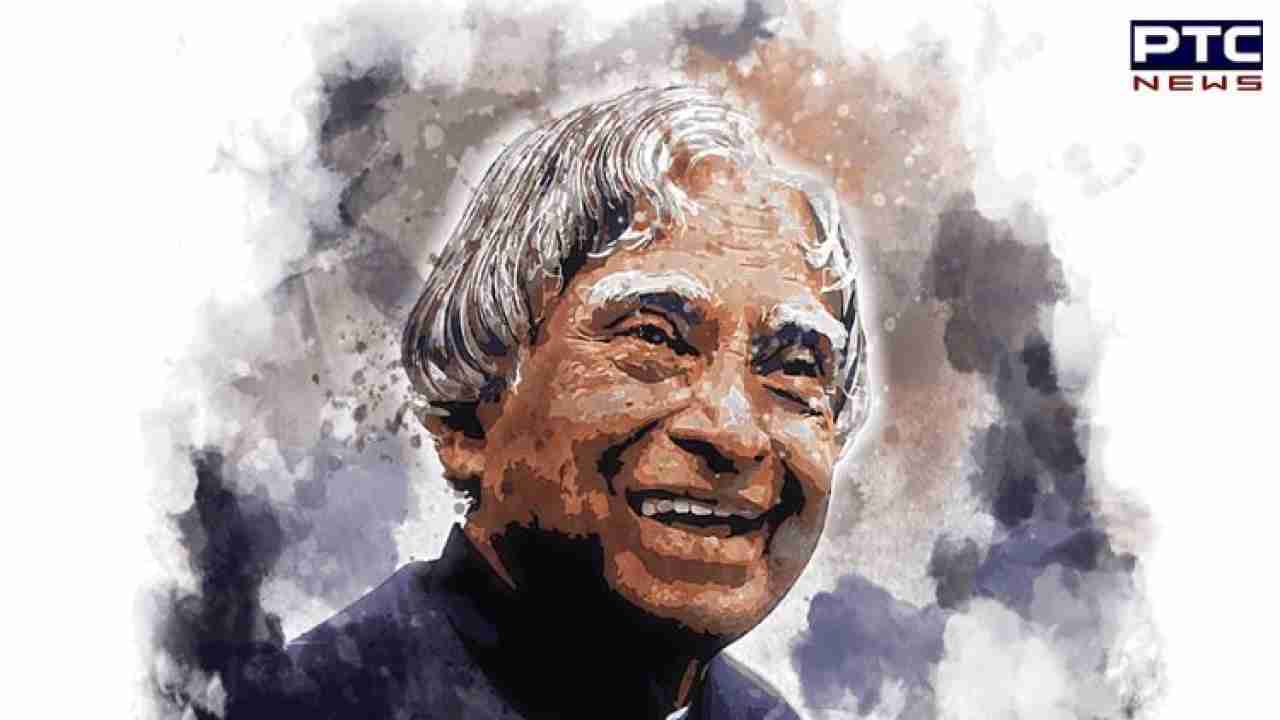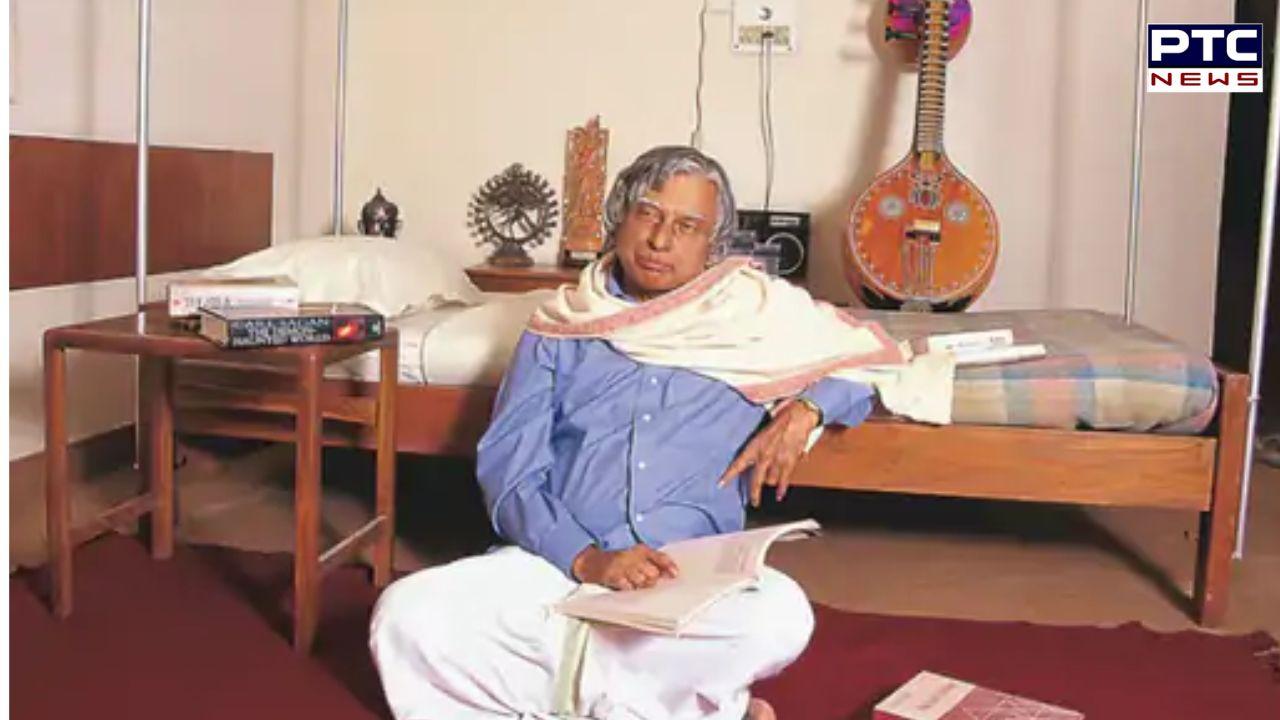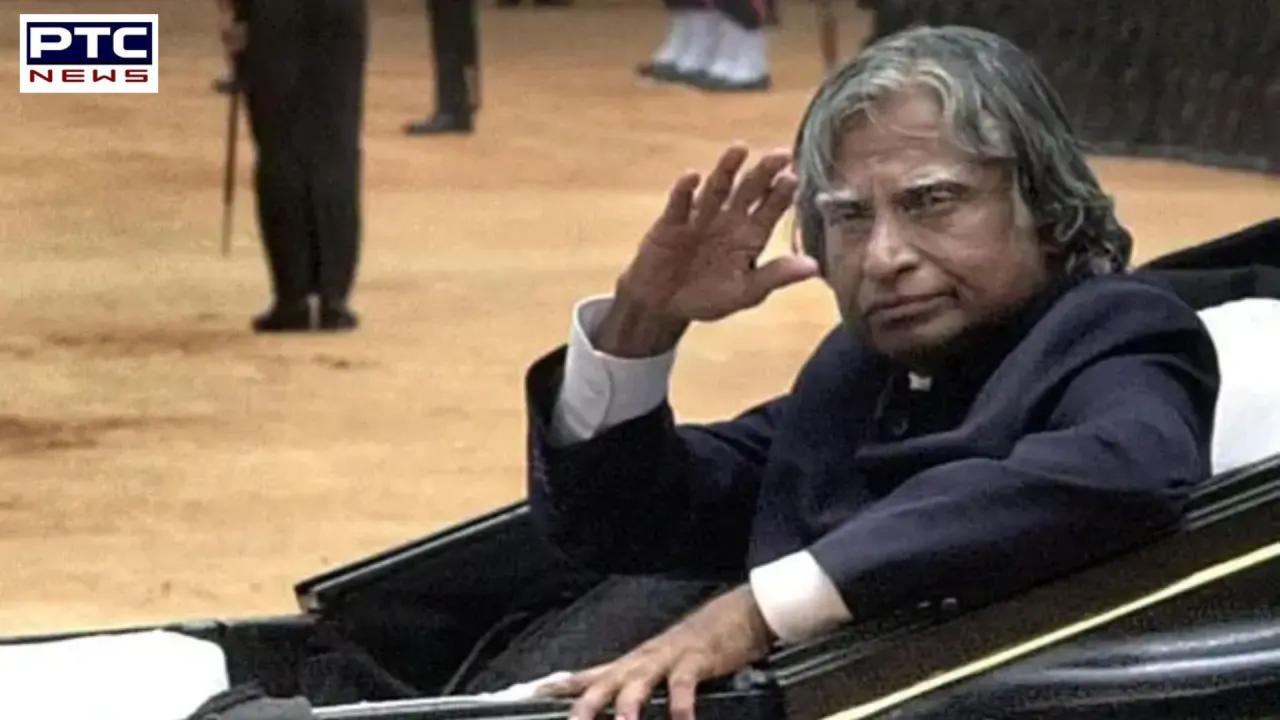Dr APJ Abdul Kalam birth anniversary: Why Dr Kalam never married? The story behind his unique hairstyle and more...
At the time of his passing, his personal assets included 2,500 books, a wristwatch, 6 shirts, 4 trousers, 3 suits, and a pair of shoes | He did not own a car or TV television

Dr APJ Abdul Kalam birth anniversary: Dr APJ Abdul Kalam, known as the 'Missile Man of India', was known for his unparalleled contributions to India’s space and missile programmes. From humble beginnings to becoming the 11th President of India, his life story is an inspiring tale of dedication and unyielding commitment to the nation. His decision to remain unmarried, his work on the missile programme, and his deep connection with the youth of India made him a beloved figure across the country.
Early Life: From Rameswaram to aerospace engineering
Born on October 15, 1931, in Rameswaram, Tamil Nadu, Dr Abdul Kalam grew up in a middle-class fishing family. Despite limited resources, his father instilled values of honesty and hard work in him. Kalam's early interest in flight led him to study aerospace engineering, aspiring to become a pilot in the Indian Air Force. However, despite his dedication, he missed selection by just one rank. This setback only fueled his determination, redirecting him towards a path that would make history.
Kalam joined the Defense Research and Development Organisation (DRDO) at the age of 29. By 38, he had moved to the Indian Space Research Organisation (ISRO), where he played a pivotal role in the development of India’s first satellite launch vehicle, SLV-III. This programme marked a significant step for India in space exploration, and it was just the beginning of his remarkable journey.

India's Missile Man: The Agni and Prithvi Projects
Dr Kalam's role in India's missile development programme brought him nationwide recognition. Under his leadership, India developed a series of missiles that bolstered its defense capabilities: Agni Missile (a medium to long-range ballistic missile, crucial for India's strategic defense); Prithvi Missile (a short-range ballistic missile for tactical battlefield use); Akash Missile (a surface-to-air missile with advanced targeting capabilities); Trishul Missile: (short-range surface-to-air missile designed for quick response); and Nag Missile (an anti-tank missile with precision targeting).
The Pokhran-II Nuclear Tests
In May 1998, Dr Kalam played a crucial role in India's successful nuclear tests under the Pokhran-II Project. As the Chief Scientific Advisor to the Prime Minister and Secretary of DRDO, he coordinated technical and political aspects of the nuclear tests alongside Rajagopala Chidambaram. These tests marked India’s emergence as a nuclear power, strengthening national security and asserting India's strategic autonomy on the global stage.
Presidency and the Role of 'People's President'
In 2002, at the age of 71, Dr APJ Abdul Kalam became the 11th President of India. Known as the “People’s President,” he maintained a humble and approachable demeanor throughout his term. Unlike his predecessors, he was known for engaging deeply with students and youth, inspiring them to dream big and work hard. He frequently interacted with children, believing that the youth were the torchbearers of a developed India.
Dr Kalam's stand on controversial issues
Dr Kalam made a historic decision during his presidency by returning the Office of Profit Bill to the Lok Sabha for reconsideration. He was the first Indian President to exercise this power. The Bill, which sought to exempt certain offices from disqualification for holding positions of profit, was passed again by Parliament, leaving him no choice but to assent.

Kalam’s presidency was also marked by his stance on capital punishment. He handled only two out of 28 mercy petitions, including the rejection of a plea by Dhananjoy Chatterjee, convicted of rape and murder. He granted clemency to a man convicted of killing his wife and children, showing his empathetic approach. He later expressed the moral difficulty he faced in affirming death penalties.
The Decision to remain unmarried
Throughout his life, Dr Kalam chose to remain unmarried, a decision he explained humorously at times and seriously on other occasions. During a programme, when asked why he never married, he replied with a smile, "I find rocket science easier to understand than marriage." The audience burst into laughter, but behind the humour lay a deeper truth.
Kalam believed that marriage and family could introduce personal desires that might hinder his dedication to the nation. He felt that remaining single allowed him to fully focus on his work, contributing significantly to India’s defense and scientific advancements.
Dr Kalam's unique style: Hair, clothes, and humility
Known for his unique hairstyle and simple demeanor, Dr Kalam’s personality was as distinctive as his contributions to the nation. He often wore a closed-collar suit, popularly known as the “Kalam Suit,” which he specially designed for himself. While most Indian Presidents adhered to traditional attire, Kalam chose a style that symbolised his scientific background and modern outlook.
Kalam's signature hairstyle also had a story. According to hairstylist Habib Ahmed, during the intense preparations for the Pokhran-II nuclear tests, Dr Kalam got so involved in his work that he couldn’t find time to cut his hair. This style became a part of his persona. His long hair, parted in the middle, also served to cover his partially underdeveloped ear—a detail he often kept private.
Achievements and global recognition
Despite not holding an academic doctorate, Dr Kalam was awarded over 40 honorary doctorates from various universities across the world, including institutions from the UK, Singapore, Canada, and Scotland. These honours were in recognition of his groundbreaking contributions to aerospace, defense, and public service. His alma mater, St Joseph’s College in Tiruchirappalli, had a special place in his heart, where he earned his degree in physics.

A life of simplicity
Dr Kalam's life was marked by simplicity. He did not accumulate wealth and lived with minimal material possessions. At the time of his passing, his personal assets included 2,500 books, a wristwatch, 6 shirts, 4 trousers, 3 suits, and a pair of shoes. He did not own a car or a television, and his daily expenses were covered by his government pension and royalties from his books. He left no will, emphasising his selfless nature.
Dr APJ Abdul Kalam passed away on July 27, 2015, due to a cardiac arrest while delivering a lecture at IIM Shillong. Even in his last moments, he was engaged in what he loved—interacting with young minds. His passing was mourned by the entire nation.
